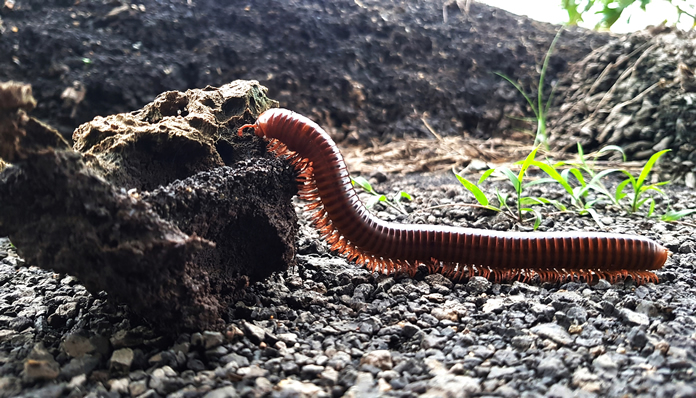Kahsay Tadesse Mawcha of Aksum University in Ethiopia admitted to using ChatGPT to produce a fake manuscript on millipedes.
Fake preprint on millipedes
A preprint about millipedes that was written using OpenAI’s chatbot ChatGPT is back online after being withdrawn for including made-up references. The paper is also under review by a journal specializing in tropical insects.
Problems with the preprint
The preprint cites non-existent papers, suggests that millipedes have a negative effect as pests, and uses ChatGPT to generate the manuscript. The preprint’s corresponding author admitted to using ChatGPT and said he wasn’t good at using AI.
Reactions from the scientific community
The preprint has caused alarm among researchers studying millipedes and centipedes, who are trying to stop it from polluting the scientific record. They have contacted the preprint server, the journal, and other authorities to alert them of the issues.
This incident involving a withdrawn AI-written preprint on millipedes is causing concern in the scientific community. Here’s a summary of the key issues:
- The preprint, created using OpenAI’s ChatGPT, was initially published on Preprints.org in June. However, it was withdrawn after being found to include fake references, which led to concerns about the integrity of scientific literature.
- Henrik Enghoff, a millipede researcher, noticed the issues with the preprint when he received notifications from ResearchGate indicating that his work had been cited incorrectly in the paper.
- The staff at the preprint server suspected the involvement of a chatbot and took down the article, blacklisting its authors. The manuscript was also rejected by MDPI’s journal Insects.
- The corresponding author, Kahsay Tadesse Mawcha of Aksum University in Ethiopia, admitted to using ChatGPT to produce the manuscript. He acknowledged that he was not proficient in using AI for scientific writing and realized that it was not suitable for such purposes.
- Mawcha later posted an updated version of the paper on Research Square, but it still contained fictitious references, which raised concerns about the accuracy of the content.
- Leif Moritz, a researcher who has studied myriapods, expressed concerns about the made-up references, particularly those suggesting that millipedes have a more negative impact as crop pests than is accurate. This could potentially lead to misinformation and misguided policy decisions.
- Research Square, the preprint server where the revised paper was posted, is aware of the issues and stated that its editorial team would look into the case and take appropriate action.
- The preprint was reportedly submitted for review to the International Journal of Tropical Insect Science but later disappeared from the website after contacting Research Square.
- Ritter Atoundem Guimapi, an editor at the International Journal of Tropical Insect Science, mentioned that they were aware of the issues related to the manuscript and were handling the case accordingly.
- Carlos Martínez, a centipede expert, contacted Mawcha and urged him to stop attempting to publish his AI-generated manuscript. He also reached out to relevant organizations, including the African Association of Insect Scientists and Ethiopia’s embassy in Germany.
Overall, this incident underscores the importance of maintaining the integrity of scientific publications and the potential consequences of using AI-generated content in research. It has prompted concerns within the scientific community about the potential impact on public perception and policy decisions related to millipedes and other organisms.













 The African Research (AR) Index is a comprehensive scholarly directory and database focused explicitly on journal publishers that publish and disseminate African research.
The African Research (AR) Index is a comprehensive scholarly directory and database focused explicitly on journal publishers that publish and disseminate African research.

